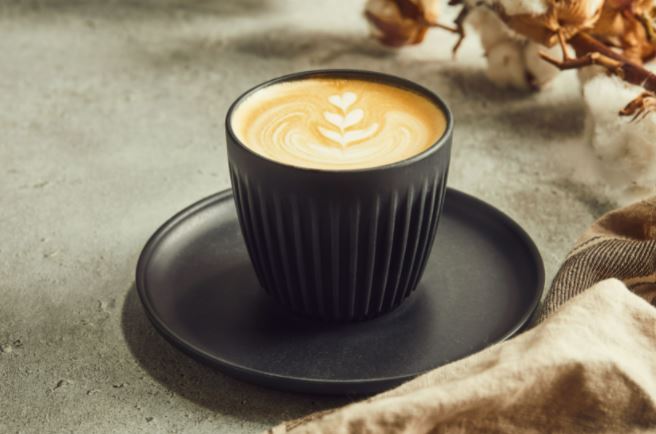Making coffee at home may be a rewarding experience in and of itself, as well as the best method to enjoy coffee that tastes exactly perfect for you. You’ve probably had fantastic coffee produced by expert baristas before, but high-quality coffee brewing isn’t limited to the counter of an expensive coffee shop. You, too, can learn how to make excellent coffee at home for a fraction of the price of going to a café.
Here are some tips for brewing your perfect cup of coffee at home.
Ensure you have the right equipment
A barista is just as excellent as their beans and equipment, just as a seasoned chef would only cook with quality ingredients and equipment. You can make a good cup of coffee without buying all the equipment and supplies listed below, but doing so can help recreate the coffee-shop experience at home.
Burr grinder – The size and form of the coffee grinds are essential for a smooth, well-rounded cup. A blade grinder’s helicopter action generates uneven-sized grinds, but a burr grinder employs abrasive, cylindrical surfaces (the burrs) to smash beans into a consistent grind size. Burr grinders also have multiple settings to achieve the right consistency for your brewing process.
Gram scale – A gram scale will assist you in precisely measuring the amount of coffee and water to guarantee the ideal ratio while brewing.
Ensure you use high-quality coffee beans
It all starts with the coffee beans you choose. If you use stale, low-quality coffee beans from the grocery store, expensive coffee brewing equipment will not produce a superb cup of coffee. Looking for specialty coffee beans and local coffee roasters is a fantastic place to start. Considering wholesale coffee from specialty suppliers or local coffee roasters is a great place to start.
Specialty coffee beans are high-quality coffee beans produced from the best farms and grown to the highest standards. They are also far superior overall quality compared to bulk or commodity coffee available in major chain stores or most grocery store coffee packs. An excellent place to get quality coffee beans is from curated coffee subscriptions.
Ensure your coffee is ground perfectly
A coffee grinder is a coffee maker’s best friend because, without one, you’d have to rely on pre-ground coffee without knowing if the size is suitable for your brewing technique. Ground coffee from reputable coffee roasters is ideal for your drip machine, French press, or pour-over, but grinding your beans is not only fresher, but it also allows you to experiment and discover your exact grind size.
Grind size and uniformity are other essential considerations. A medium-to-medium-fine grind is recommended for most drip coffee machines. If you grind it too coarse, you will get a weak cup of coffee. If you grind the coffee too fine, it will be over-extracted and bitter.
Ideally, you should grind your beans right before brewing and use them within 15 minutes. Coffee loses taste after 30 minutes of being ground. As a result, it’s preferable to grind on the spot right before making a pot.
Burr grinders give the most uniform grind, but they don’t come cheap. A manual hand mill is the most cost-effective technique to produce a beautiful, uniform grind. However, it does involve some physical work. Blade grinders also perform, but the particle size is uneven, which can lead to over-extraction.
Use fresh coffee
If you buy pre-ground coffee in bags, you’re doing it wrong. Begin with fresh, whole beans instead. Nothing surpasses the taste of freshly roasted, high-quality coffee. There’s a reason why most coffee producers don’t specify dates for when the coffee was roasted; the product on the grocery store shelf has most likely been there for months.
Coffee begins to lose its delicate flavors as soon as it is roasted. Coffee reaches peak flavor a few days after roasting and should be used within a month. Most coffees are best consumed between 5 and 21 days after roasting, so keep an eye on the roast date marked on the coffee bag if you want to enjoy it at its freshest.
Buying coffee from local coffee roasters rather than grocery shops is the best method to get high-quality, freshly roasted coffee. You can also check out nearby coffee shops for fresh coffee. Some roast on the spot, while others buy from local roasters who roast in smaller quantities, resulting in fresher coffee. Better-sourced beans and fresh coffee will ensure that your home-brewed coffee cup contains the best flavors and fragrances.
Pay attention to your coffee and water ratio.
Paying attention to the coffee-to-water ratio while making coffee at home is critical. This is the quantity of coffee grinds you’ll need to make the appropriate amount of brewed coffee.
The coffee flavor is derived from how hot water reacts with coffee and absorbs its valuable soluble components. Over-extracting will yield a harsh and flavorless cup, while under-extracting will produce a flat, sour flavor. To get the optimum taste from your coffee, strive for the sweet spot, also known as the golden ratio.
Brew your coffee with suitable water
Another sometimes ignored part of coffee brewing is the water quality you use. Using hard, mineral-rich water will cause the dissolved particles in your coffee to bond poorly, resulting in under-extracted, weak coffee. Furthermore, the larger mineral content causes buildup in your coffee machine – lime deposits. This will necessitate more frequent de-scalement of your coffee machine.
On the other hand, water that has been thoroughly filtered or distilled can be just as damaging to your equipment. While it does not generate as much accumulation, the water’s lack of ions and mineral content forces it to leach minerals out of the metal components and damage your coffee machine’s efficiency over time.
Store your coffee well
Moisture and heat are enemies of the newly roasted coffee bean, so consider how you’ll preserve your prized possession. High-quality coffee is packaged in one-way degassing valve bags. This valve allows the CO2 the roasted coffee beans emit to escape the bags while preventing oxygen from entering, preserving the exquisite flavor.
Coffee should be stored in its original coffee bag, away from direct sunlight. Opt for an airtight and transparent container if you prefer to move them to a new container after opening the bag.



![[Review] Be Our Guest to a Night of Enchantment with Disney’s Beauty and the Beast in Singapore This December [Review] Be Our Guest to a Night of Enchantment with Disney’s Beauty and the Beast in Singapore This December - Alvinology](https://media.alvinology.com/uploads/2025/12/Screenshot-2025-12-14-195843-110x110.png)

![[Review] Tim Ho Wan’s Limited Edition East-Meets-West Menu Brings Festive Flavours to Dim Sum [Review] Tim Ho Wan’s Limited Edition East-Meets-West Menu Brings Festive Flavours to Dim Sum - Alvinology](https://media.alvinology.com/uploads/2025/12/6194907278834600928-110x110.jpg)






